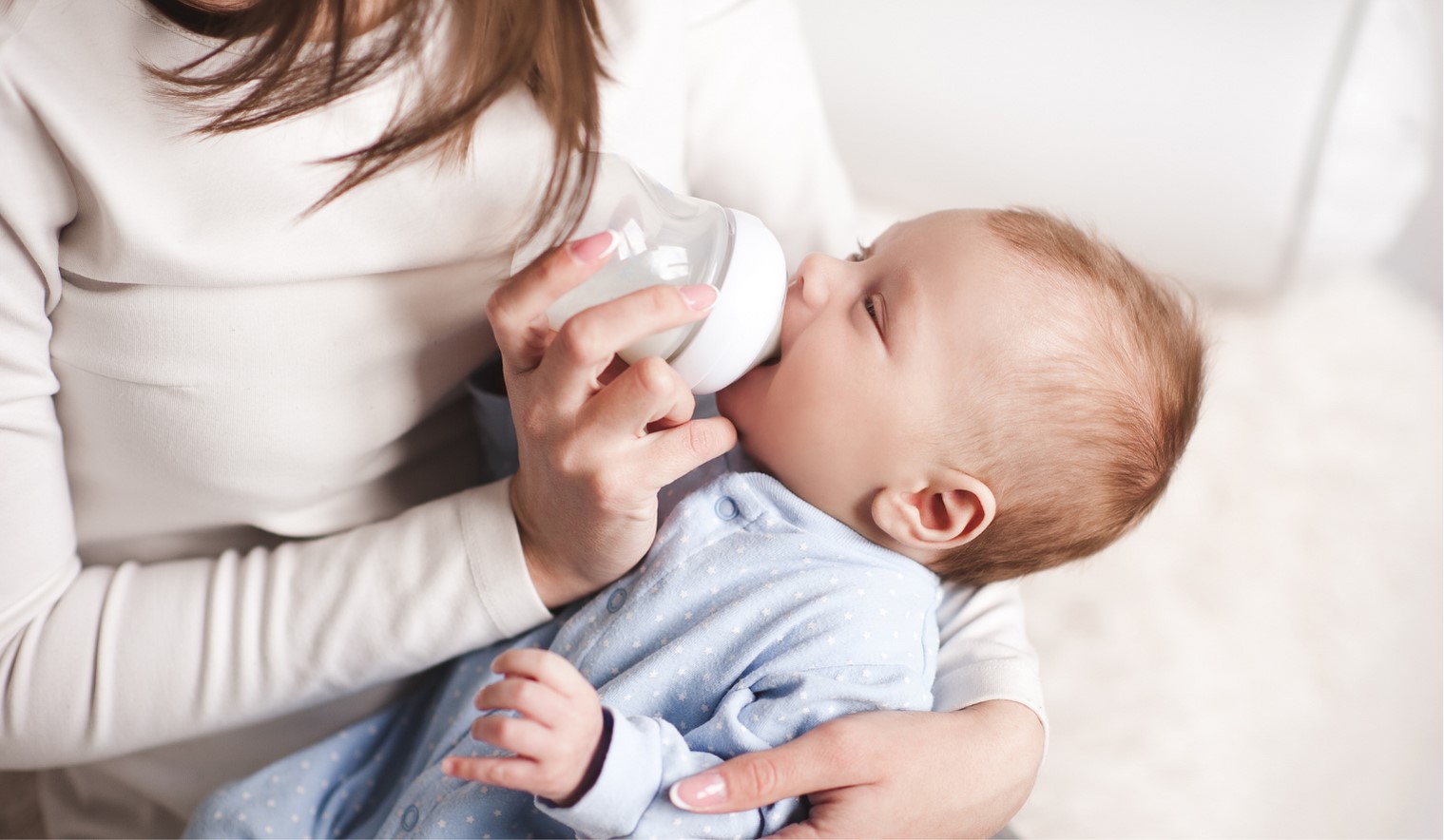Newborns enter the world with unique sleep cycles, adjusting over several months as their circadian rhythms settle in – usually past the 2-month mark. Getting babies to settle down for bed is a tough ordeal, and parents have to do it every night! It’s more than understandable that some parents will be reluctant to wake their baby once they’re finally fast asleep.
“Never wake a sleeping baby” is a common saying going around in most parenting forums, but how much truth is there to that statement?
Turns out, the rule of “Never wake a sleeping baby” doesn’t apply too much! There are a ton of situations where you’d be better off waking the child up at night. Even the few instances where you ought to let them sleep (i.e. sickness) have key exceptions (i.e. baby needs to be given meds).
That doesn’t mean you’re free to rouse them in the dead of night, though. Babies benefit from restful sleep cycles, so don’t make it a habit of interrupting their naps!
This article contains a few dos and don’ts in waking your baby up. Keep in mind that these are only guidelines, and may not apply to every baby and every situation. Any concerns that you may have with your baby’s sleep and arousal are best taken up with a professional, such as your baby’s pediatrician.
Never Wake a Sleeping Baby – True or False?
Do Wake Your Baby …
1. If They’re Sleeping in an Unsafe Position

Guidelines from the American Association of Pediatrics indicate that babies up to 1 year old need to be placed on their backs to sleep, during naps and at night to prevent SIDS. If your baby has managed to roll over onto their tummy or side, gently reposition them by flipping them over onto their back.
Between 4 and 6 months old, most babies begin rolling over from back to tummy and from tummy to back. Once your baby can consistently roll over both ways, you should still place them on their back to sleep, but it is generally safe to leave them sleeping on their tummy should they roll over at night.
While you do not necessarily need to wake your baby to reposition them, it is possible that they will wake up as you do so, especially if they are a light sleeper.
2. When They’ve Been Napping Too Long
The amount of sleep your baby gets during the day will affect their nighttime sleep quality and quantity. With the exception of newborns, naps should be limited to 3-4 hours long each day.
Naps that go on for too long may cause your baby to sleep poorly at night, which will lead to them making up for lost nighttime sleep by taking longer naps during the day. This can easily create a circular problem if left to go on for too long. Of course, the odd long nap here and there likely won’t do any major damage, but frequently napping for more than 4 hours a day should be avoided.
At the same time, keeping a tired baby awake will often leave them fussy and overtired, and can lead to them having meltdowns and fighting sleep when bedtime actually rolls around. Give your baby time to be active during the day, but to but allow them time to rest and sleep as well. Usually, a 3 to 4-hour nap in the middle of the day is enough to give them enough energy and keep them from being overtired.
3. To Fix Day/Night Confusion
This ties in to the previous point about waking your baby. Day/Night confusion is caused by imbalances in your baby’s underdeveloped circadian rhythm. As a result, they may sleep for long periods during the day but wake and feed frequently throughout the night.
A proper circadian rhythm is a key part in reversing day/night confusion. In order to help your baby develop a proper circadian rhythm, they need to be up and active during the day. Limiting naps to a total of 4 hours each day allows your baby time to feed adequately and get enough of their energy out through the day, and therefore wake up and feed less during the night.
4. When They Need to Be Fed

Newborns sleep anywhere between 14 and 19 hours each day, but due to their tiny stomach size, they also need to wake frequently to feed and put on weight and receive adequate nutrition. Breastmilk is digested faster than formula, so breastfed babies need to be fed more often, around every 1-2 hours. Formula fed babies can go slightly longer between feeds, around 3-4 hours.
More often than not, your baby will be able to signal their hunger with certain cues such as crying, lip smacking, turning their head from side to side, and bringing their hands to their mouth and sucking. In the first few weeks however, babies can sometimes sleep through hunger cues. This can cause slow weight gain or even weight loss issues. It can also affect your breastmilk supply.
From birth to one month, your baby’s stomach grows from the size of a cherry to the size of a chicken egg. Once your baby is over 6 weeks old and has been gaining weight consistently and appropriately, you can stop waking them to feed and let them establish their own wake to feed patterns.
Don’t Wake Your Baby When…
1. They’re Sick
Rest is just as important as food is with sick babies and toddlers. There is no need to wake your baby to take their temperature or give them fever reducers if they are sleeping peacefully enough.
However, if your baby is sleeping restlessly, waking them up to give them fever reducers may allow them to sleep more comfortably. If they are breathing rapidly or irregularly, or if their breathing seems labored, you may want to wake them up to take their temperature and decide what actions to take next.
Overall, never wake a sleeping baby if they’re feeling sick. The single exception would be if you had to wake your infant to give them the right medication.
Call your doctor or visit urgent care if:
- Your baby has a fever and is less than 3 months old.
- Your baby is more than 3 months old and has a fever of 104°F (40°C) or higher.
- Your baby’s temperature drops lower than 97.7°F (36.5°C).
- Your baby’s fever lasts longer than 5 days.
- Your baby’s fever does not go down with fever reducers.
- Your baby is acting lethargic or is difficult to arouse.
- You are concerned. It is always better to be overly cautious, especially when it comes to your baby’s health.
2. They’re No Longer Needing Overnight Feedings

Between 4 and 6 months old, babies start to show a preference for longer nighttime sleeps. They also hit the 12 to 13-pound mark around this age, and will be able to eat enough in one feeding to sleep for 6-8 hours at a time. At this stage, they can most likely begin weaning off overnight feeds.
While most babies will be ready to wean off overnight feeds at this age, you do not necessarily have to do so straight away. It is perfectly alright to just reduce the number of overnight feeds or simply wait until your baby is older to wean off overnight feeds.
Note that, regardless of your baby’s health, you should always get approval from your baby’s pediatrician on whether you should or shouldn’t begin weaning off overnight feeds.
Once all of those are cleared, it’s safe to let them sleep through the night. Never wake a sleeping baby because you’re worried they might still be hungry – you’ll just leave them wide awake and cranky!
To Summarize
“Never wake a sleeping baby” isn’t a catch-all adage to stand by. Deciding whether or not to wake your child up always depends on the situation.
Wake your baby and flip them onto their back if they are sleeping on their side or their tummy before they can roll over. If they have napped for more than 4 hours in a day, or are due for their next feed. Waking your baby up from naps can also help with avoiding and fixing day/night confusion.
There are also times when it is better to leave your baby asleep. If your baby is sick but is sleeping comfortably enough, there is no need to wake them for fever reducers or a temperature check. If your baby has begun to wean off overnight feeds, it is alright to leave them asleep and allow them to wake up for feeds on their own.

